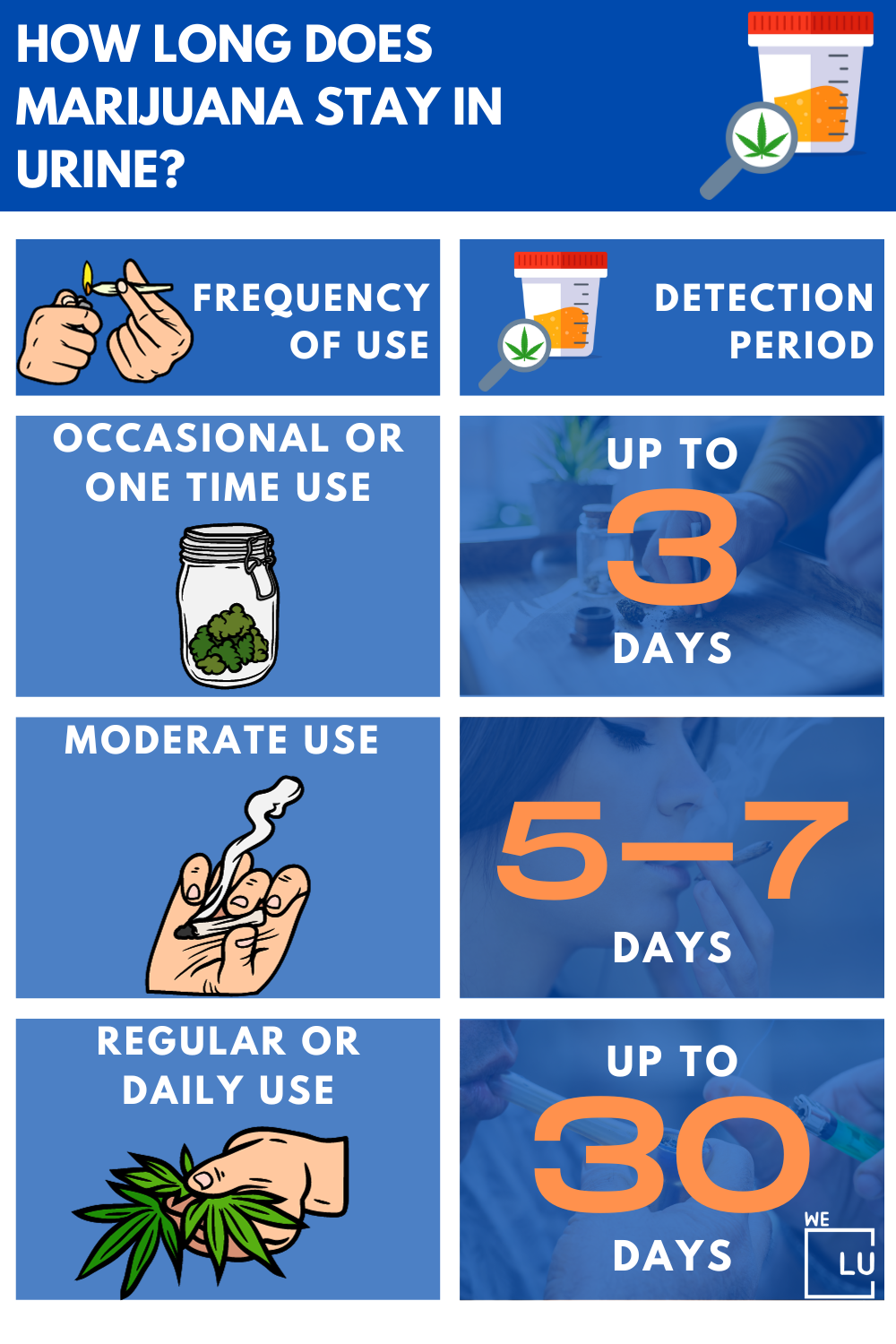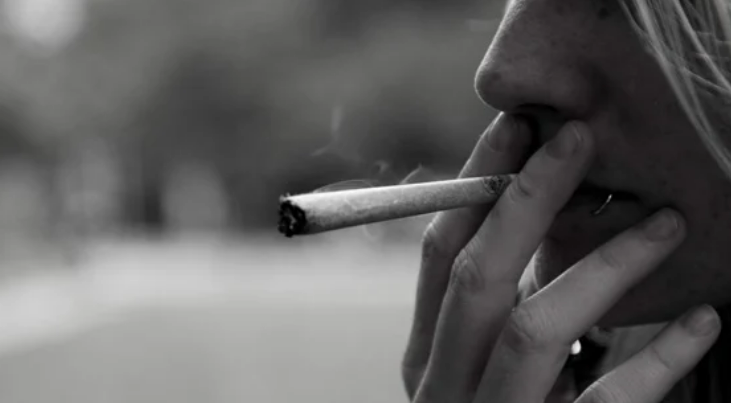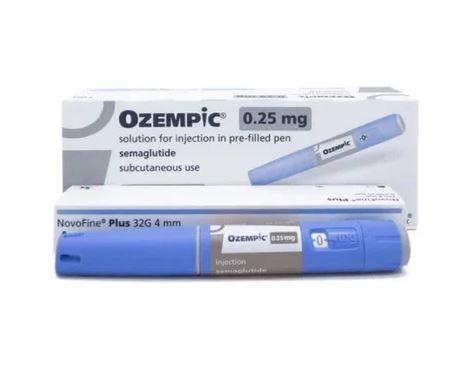Marijuana or weed is a natural substance derived from the cannabis sativa plant. An astonishing 192 million global users often enjoy it recreationally for its euphoric effects. The plant contains tetrahydrocannabinol, or THC, responsible for weed’s effects. It is smoked, ingested, or vaped,
Guide to How Long Does Marijuana Stay in Urine?
As more states embrace marijuana, also known as weed, legalization, access to the famous plant has never been easier. With new products hitting the market and changing societal attitudes, weed has become a staple for many. However, with the drug illegal in some areas, employment organizations may require marijuana drug tests. So, the burning question remains: how long does marijuana stay in your system? Let’s dive into how long does weed stay in your system urine tests. We’ll delve into the individual factors and types of drug tests involved. Continue for how long does marijuana stay in your system?
Cannabis Drug Tests Overview
Welcome to our comprehensive guide on the detection time of marijuana in different bodily fluids and systems. Whether you’re curious about or want to understand how long marijuana can be detected, this guide will provide the necessary information. We’ll explore the detection time for urine, blood, hair, saliva, and the entire system, considering different usage levels. Continue below for more about how long does marijuana stay in your system.
How Long Does Weed Stay in Your Urine Table
Here’s a table summarizing the approximate detection windows for marijuana in urine drug test results based on the frequency of weed use:
| Level of Use | Approximate Detection Time in Urine |
|---|---|
| Occasional or one-time use | Up to 3 days |
| Moderate use (several times a week) | 5 to 7 days |
| Regular or daily use | Up to 30 days or longer |
If you find it hard to stop or quit using weed, contact the We Level Up Treatment Center professionals for support. Call our helpline 24/7 for resources and a plan to get you feeling better.
How Long Does Marijuana Stay In Urine Chart
The time marijuana stays in urine can vary depending on several factors, including frequency and duration of use, metabolism, body fat percentage, and individual differences. Here is a general guideline for how long marijuana may be detected in urine:
- Occasional or one-time use: Marijuana can typically be detected in urine for up to 3 days after use.
- Moderate use (several times a week): Marijuana may be detectable in urine for 5 to 7 days after use.
- Regular or daily use: In individuals who use marijuana heavily or daily, it can be detectable in urine for up to 30 days or even longer.
These “how long does weed stay in your system urine test” estimates vary. Various drug testing methods, including weed urine tests, have different sensitivities and detection thresholds, influencing how long marijuana is detectable.
Hydration, exercise, and metabolism can affect how long does marijuana stay in urine detection window. Additionally, other types of drug tests, such as blood or hair tests, may have different detection periods.
How Long Does Marijuana Stay In Urine?
According to the National Survey on Drug Use and Health (NSDUH), 19% of adults in the United States reported using marijuana recreationally in the last year, translating to about 54.1 million users. This illustrates that marijuana is the most commonly used federally illegal substance in the USA.
Weed is often tested as a condition of employment or participation by many businesses, government agencies, and other groups. Urine analysis can detect the presence of marijuana and its metabolites in the body, making it a popular choice for drug testing.
The time it takes for THC to be detected in the urine after marijuana use varies by the user’s frequency, dosage, and metabolic rate. The average time for marijuana to be detected in urine is 30 days. Still, this time can be significantly shorter or longer depending on these and other factors. While urine tests can identify cannabinoid levels, they cannot determine intoxication levels at the time of testing.
Marijuana Urine Test
Urine tests for marijuana typically use cutoff levels for identifying the presence of marijuana. These thresholds indicate the lowest detectable levels of THC metabolites in the urine that can produce a positive test result. The cutoff for a positive result differs from test to test and organization to organization.
More sensitive tests can detect THC metabolites in urine at lower concentrations than the typical urine test for marijuana. In some cases where a lower detection limit is required, such as in court or a workplace drug testing program, these tests may be used.
Because THC and its metabolites are eliminated through urine, factors that affect urine retention, such as hydration levels, can affect the rate at which these compounds are eliminated from the body and, in turn, the length of time they can be detected.
Overall, understanding how long marijuana stays in urine and the different types of urine tests for marijuana is essential for anyone who uses marijuana and may be subject to drug testing. Knowing what factors can shorten or lengthen the time it takes to make a detection is crucial for being able to adjust accordingly.
Employers and other groups conducting drug tests should also be familiar with the range of acceptable results. They must follow the rules and regulations of the places where they conduct tests.
Urine Drug Test Marijuana
A urine test for Marijuana is used to detect the presence of tetrahydrocannabinol (THC), the active ingredient in marijuana, in an individual’s system. Marijuana Urine Retention can affect the test results, as THC can remain in the body for several days after use.
Marijuana urine test cutoff levels and marijuana urine test threshold are the measures used to determine whether an individual has consumed marijuana. Cutoff levels are the minimum THC required to trigger a positive test result. At the same time, the threshold is the maximum amount of THC that can be present in the urine without triggering a positive result.
It’s important to note that urine tests of marijuana can produce false positives, meaning that an individual who has not used marijuana may still test positive for the drug. This can happen due to factors such as passive exposure to marijuana smoke or consuming certain foods and medications that can interfere with the test.
Overall, a Marijuana urine test is a widely used and effective tool for detecting Cannabis use in individuals. Still, interpreting the results cautiously and in conjunction with other factors, such as an individual’s medical history and other drug use, is essential.
How Long Does Marijuana Stay In Urine?

Skip To:
Learn More:
- How To Stop Smoking Weed Cold Turkey? Dangers & Effects
- How to Sober Up On Weed?
- Xanax and Weed, Is it Safe to Mix Them?
- How to Flush Weed Out of Your System?
- How Long Does A High Last? Weed High & Substance Abuse
- How Long Do Weed Highs Last? Cannabis Effects, Use & Abuse
- How To Get Unhigh Fast? Sobering Up From Weeds & Drug Abuse.
- Weed Edibles And How To Get Started With Addiction Treatment
- Depression and Marijuana. Is Marijuana A Depressant? Does Marijuana Help Depression?
- Marijuana Addiction
How long does marijuana stay in urine, blood, saliva, and system table
Below is a table highlighting the detection time for marijuana in various bodily fluids and systems. The Y-axis represents different levels of use: occasional, moderate, and heavy. The X-axis represents the approximate detection windows for marijuana in urine, blood, saliva, and the overall system for varying use levels.
| Weed Use | Urine Detection Time | Blood Detection Time | Hair Detection Time | Saliva Detection Time | System Detection Time |
|---|---|---|---|---|---|
| Occasional or one-time use | Up to 3 days | Up to 24-48 hours | Up to 90 days | Up to 24-72 hours | Up to 3 days |
| Moderate use (several times a week) | 5-7 days | 2-7 days | Up to 90 days | Up to 1-2 weeks | Up to 2 weeks |
| Regular or daily use | Up to 30 days or longer | Up to several weeks | Up to 90 days | Up to several weeks | 90 or more days |
Please note that these are approximate timeframes and can vary based on factors such as metabolism, body fat percentage, hydration levels, and individual variability. Weed hair testing can provide a longer detection window, but it typically requires a more extended timeframe of use for detection to be possible.
Get Help. Get Better. Get Your Life Back.
Searching for Accredited Drug & Alcohol Rehab Centers Near You? Or Mental Health Support?
Even if you have failed previously, relapsed, or are in a difficult crisis, we stand ready to support you. Our trusted behavioral health specialists will not give up on you. Call us when you feel ready or want someone to speak to about therapy alternatives to change your life. Even if we cannot assist you, we will lead you wherever you can get support. There is no obligation. Call our hotline today.
FREE Addiction Hotline – Call 24/7How To Pass A Urine Test For Marijuana?
How to pass a urine test for marijuana? Like any substance, marijuana can have immediate and long-term consequences for a user’s body and mind. Marijuana’s short-term effects include memory loss, trouble concentrating and solving problems, skewed perception, a racing heart, and sluggish reflexes.
Chronic bronchitis and lung infections are just two of the many respiratory problems and mental health problems resulting from using marijuana regularly. Marijuana use also has the potential to impair decision-making and motor function, both of which can lead to an increased likelihood of injury.
You must take a urine test and be a chronic pot smoker. In that case, you should be aware of the risks associated with continued use and seriously consider quitting for your health. You can stop using marijuana and start living a healthier, more fulfilling life with the help of resources like support groups and addiction treatment programs.
Weed Addiction Statistics
While marijuana has become more mainstream in recent years, there are still risks associated with its use. In this section, we will explore some of the most relevant statistics related to the potential dangers of weed use. This includes information on the potential adverse effects of marijuana on physical and mental health and the impact of driving under the influence of cannabis.
While there is still much to learn about the risks and benefits of marijuana use, understanding the available data can help individuals make informed decisions about their use and contribute to ongoing discussions around cannabis policy and regulation.
17.5%
Among those 12 and older, marijuana consumption increased from 11% to 17.5%.
Source: NIDA
55 Million
The number of American adults who currently use marijuana.
Source: NIDA
24%
The percentage of 12th-graders who have used marijuana in the past year.
Source: NIDA
Weed Facts
What is Weed?
Marijuana, also called weed, is a substance obtained from the cannabis plant for THC-induced effects. Weed is the most widely used illegal substance in the US, according to the National Institute on Drug Addiction (NIDA).
Weed Effects
Humans have looked into various methods to enjoy marijuana’s effects. The most popular ways to consume marijuana are as hand-rolled joints or through pipes.
Another alternative method of marijuana consumption is via vaporizers. There are numerous recipes for baking cannabis into brownies and cookies and blending it with butter, tea, and oils.
When THC, the primary psychoactive component of marijuana, travels to the brain and enters the bloodstream, the effects of marijuana become apparent.
How long does marijuana stay in urine?
The detection window for marijuana varies depending on the type of test conducted (urine, blood, saliva) and individual factors. Here’s a general overview:
- Urine:
- Occasional use: Up to 3 days
- Regular use: 5 to 7 days
- Heavy, chronic use: Up to 30 days or longer
2. Blood:
- THC (the main psychoactive component of marijuana) is detectable for a shorter period in the blood compared to urine.
- Occasional use: Up to 24 to 48 hours
- Regular use: 2 to 7 days
- Heavy, chronic use: Up to several weeks
3. Saliva:
- THC can typically be detected in saliva for a shorter period than urine or blood.
- Occasional use: Up to 24 to 72 hours
- Regular use: Up to 1 to 2 weeks
- Heavy, chronic use: Up to several weeks
These are broad “how long does weed stay in urine” estimates. Actual “how long does weed stay in your urine” detection times vary depending on factors such as metabolism, body fat percentage, and individual differences. Furthermore, the sensitivity of the testing method can affect the “how long does weed stay in your system urine test” detection windows.
If you are facing a weed drug test or have specific concerns about marijuana detection, it’s best to consult with a healthcare professional or a laboratory that specializes in drug testing, as they can provide more accurate and tailored information based on your situation.
Weed Dependence
Cannabis use can lead to addiction. Marijuana consumption has negative psychological and physical repercussions. Physical symptoms include difficulty breathing, rapid heartbeat, nausea, and vomiting.
Regarding their mental health, marijuana users may also be more susceptible to hallucinations, paranoia, disordered thinking, depression, anxiety, and suicidal thoughts.
Furthermore risky for women, and marijuana use during pregnancy. Premature birth, low birth weight, and other harmful effects have all been related to marijuana usage by pregnant women.
It is conceivable to overdose on marijuana to the point of suffering significant symptoms, such as anxiety and paranoia, even though a life-threatening overdose has never been documented.
Occasionally, people who experience a psychotic reaction from marijuana are in the emergency room. Like intense vertigo, which results in nausea and vomiting, it can prompt patients to seek medical attention.
How long does weed stay in your system urine test?
Urine is the most common drug test method. Urine tests can detect marijuana for different durations depending on the frequency and level of use. Occasional users can test positive for up to 4-7 days, moderate users for 7-21 days, and heavy users for more than 21 days.
How Long Does Marijuana Stay In Urine? Popular FAQs
-
How long does marijuana stay in urine & how long does marijuana stay in your urine?
How long THC remains detectable in the urine depends on the individual’s metabolism, how often they use marijuana, and the specificity of the drug test. Typically, the detection window for marijuana in urine is between 30 days before and 30 days after use.
-
How long is marijuana in urine & how long does marijuana last in urine?
Urine can show signs of marijuana use up to a month after the last use.
-
How long does marijuana stay in urine after one hit?
The duration of marijuana’s presence in urine after a single inhalation can fluctuate based on various factors, such as an individual’s metabolic rate, the potency of the marijuana, and the drug test’s sensitivity.
-
How long is marijuana detectable in urine & how long is marijuana detected in urine?
Marijuana can be detected in urine for up to 30 days following its use. The detection window may vary based on various factors, including the frequency and quantity of cannabis consumption, an individual’s metabolic rate, and the drug test’s sensitivity. It is imperative to acknowledge that the detection window may vary, being shorter for sporadic users and longer for individuals with a high frequency of use.
-
How long is marijuana in your urine & how long can marijuana be detected in urine?
The urinary detection period for cannabis can extend up to 30 days post the most recent usage. The duration of the aforementioned time frame may vary based on variables such as the frequency and quantity of marijuana consumption, personal metabolic rate, and the specificity of the drug screening. Acknowledging that the detection period may vary for sporadic and chronic users is imperative.
-
How to pass a urine drug test for marijuana?
Various techniques can enhance the probability of passing a urinary drug screening, such as refraining from using marijuana for at least one month before the test, maintaining proper hydration, and engaging in routine physical activity. Acknowledging that cheating or falsifying a drug test is unlawful and unscrupulous and may result in severe repercussions is imperative.
-
How long does weed stay in urine for frequent users?
For frequent users, marijuana can be detectable in urine for an extended period compared to occasional users. Here’s a general guideline of the detection window for frequent marijuana users:
Weed can stay up to 30 days or longer. Heavy, chronic marijuana use can lead to an extended detection window in urine. This means that traces of marijuana can be detected in urine for around a month or even longer after the last use.

Get Your Life Back
Find Hope & Recovery. Get Safe Comfortable Detox, Addiction Rehab & Mental Health Dual Diagnosis High-Quality Care at the We Level Up Treatment Centers Network.
Hotline (877) 378-4154
How to Pass a Urine Drug Test for Marijuana?
The utilization of marijuana during pregnancy is a topic of debate, as it can have adverse effects on the developing fetus. Regarding the duration of marijuana detection in urine during pregnancy, it is noteworthy that the detection period does not differ significantly from that of non-gravid individuals.
Marijuana can be detected in urine for up to 30 days following its use. The duration of the aforementioned time frame may be subject to variability based on multiple factors, such as the frequency and quantity of cannabis consumption, an individual’s metabolic rate, and the drug test’s specificity.
First-class Facilities & Amenities
World-class High-Quality Addiction & Mental Health Rehabilitation Treatment
Rehab Centers TourRenowned Addiction Centers. Serene Private Facilities. Inpatient rehab programs vary.
Addiction Helpline (877) 378-4154Proven recovery success experience, backed by a Team w/ History of:
15+
Years of Unified Experience
100s
5-Star Reviews Across Our Centers
10K
Recovery Success Stories Across Our Network
- Low Patient to Therapist Ratio
- Onsite Medical Detox Center
- Comprehensive Dual-Diagnosis Treatment
- Complimentary Family & Alumni Programs
- Coaching, Recovery & Personal Development Events
Weed Withdrawal & Detox
For people who have become dependent on marijuana, going through withdrawal can be a trying and unpleasant experience. The good news is that there are ways to reduce the severity of withdrawal and plenty of resources to get you through it.
Seeking medical or addiction professional assistance is one method for dealing with cannabis withdrawal. They can help you gradually reduce your marijuana use and provide medication to ease the discomfort of withdrawal.
In addition to medical care, weed withdrawal supplements may help reduce the severity of withdrawal. Supplements like melatonin, valerian root, and magnesium can alleviate withdrawal-related sleeplessness, anxiety, and muscle tension.

World-class, Accredited, 5-Star Reviewed, Effective Addiction & Mental Health Programs. Complete Behavioral Health Inpatient Rehab, Detox plus Co-occuring Disorders Therapy.
CALL (877) 378-4154End the Addiction Pain. End the Emotional Rollercoaster. Get Your Life Back. Start Drug, Alcohol & Dual Diagnosis Mental Health Treatment Now. Get Free No-obligation Guidance by Substance Abuse Specialists Who Understand Addiction & Mental Health Recovery & Know How to Help.
Concerned About “How Long Does Marijuana Stay In Your Urine?” We Level Up Dual Diagnosis Treatment Specialists Can Help.
The definition of dual diagnosis (also referred to as co-occurring disorders) can differ between institutions. However, it is generally described as the specific treatment of someone diagnosed with a substance use disorder and a mental health disorder simultaneously. Treating dual-diagnosis clients is a critical aspect of our inpatient treatment experience because co-occurring disorders are strongly correlated with instances of substance abuse.
Creating a treatment plan that addresses the physical aspects of withdrawal, the psychological connection with drug use, and managing underlying mental health disorders is part of setting clients up for success. A thorough mental health analysis identifies possibilities for treatment. Meeting with mental health counselors and medical care providers means access to behavioral therapy and medication treatment. At our dual diagnosis treatment center, We Level Up can implement the highest quality of care.
We recognize the fragile complexities of how mental and substance abuse disorders can influence others and sometimes result in a vicious cycle of addiction. That’s why we offer specialized treatment in dual-diagnosis cases to provide the most excellent chance of true healing and long-lasting recovery.
Accepting that you may be living with a mental illness can be challenging. However, treating the presenting substance abuse case can be magnitudes easier once properly diagnosed and treated. Only a properly trained medical professional can diagnose these underlying conditions. If you believe you are suffering from a disorder alongside addiction, we urge you to seek a qualified treatment center to begin your journey to recovery. Call We Level Up today.
Experience Transformative Recovery at the We Level Up Treatment Center.
See our authentic success stories. Get inspired. Get the help you deserve.



Start a New Life
Begin with a free call to an addiction & behavioral health treatment advisor. Learn more about our dual-diagnosis programs. The We Level Up treatment center network delivers various recovery programs at each treatment facility. Call to learn more.
- Personalized Care
- Caring Accountable Staff
- World-class Amenities
- Licensed & Accredited
- Renowned w/ 5-Star Reviews
We’ll Call You
Watch the Marijuana Withdrawal Symptoms Timeline, Half-life, Effects, Addiction Dangers & How Long Does Marijuana Stay in Urine Informative Video
Search How Long Does Marijuana Stay In Urine? Effective Weed Treatment Topics & Resources
Sources
- National Institute on Drug Abuse (NIDA) – Marijuana: https://www.drugabuse.gov/drug-topics/marijuana. How long does weed stay in urine?
- National Highway Traffic Safety Administration (NHTSA) – Drugs and Human Performance Fact Sheets: https://www.nhtsa.gov/sites/nhtsa.dot.gov/files/documents/812440-drugsandhumanperformancefactshheet.pdf. How long does weed stay in urine?
- Centers for Disease Control and Prevention (CDC) – Marijuana and Public Health: https://www.cdc.gov/marijuana/index.htm. How long does weed stay in your urine?
- National Conference of State Legislatures (NCSL) – Marijuana Overview: https://www.ncsl.org/research/civil-and-criminal-justice/marijuana-overview.aspx
- National Organization for the Reform of Marijuana Laws (NORML) – State Laws: https://norml.org/states. How long does weed stay in your urine?





